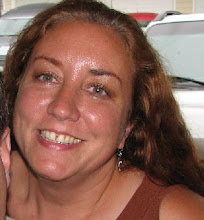Homecoming

The classroom is unfamiliar. Unlike the antiquated rooms I have taught in for the last two years, this one is large and airy, with a dual projection system that brightly displays my slides on either side of me. The room also has a sound system that allows me to play The Chieftains as the students begin to file in. They take their seats to the steady beat of a bodhran as it accompanies a clear Irish tenor who sings of the squid jiggin' ground. I watch as feet tap unconciously to the fiddles. This is my 10th year as university faculty but it is the first time that I have brought this part of me to the classroom. The music you are drawn to reveals who you are. I let the music introduce me in a way that my words cannot.
It doesn't take long for the students to realize they are in the room with a Celt. If the mass of red curls doesn't tip them off, the storytelling does. Today I tell the story of how I got here. They hear of undergraduate days spent in Washington, DC, of my struggles as a new clinician in Syracuse caring for 54 surgical patients alone, of zipping into a flightsuit and caring for the critically ill and injured while sacrificing my hearing to the drone of the rotor blades. They hear of doctoral work done in Cleveland, the land of dead NFL teams, and the circumstances that brought me to Virginia, the land of dead presidents. They hear of my committment to lead my discipline and my expectation that they will do the same someday. There are 81 of them. Some of the students are fresh from their undergraduate studies and have yet to step into a hospital. Others have been around longer than I have. I tell them that by the end of the semester I will know how each of them came to be in my classroom. They hear how the art and science of caring for critically ill people isn't what I do, it's what I am. I am both artist and scientist. The older students nod their heads. I assure the newbies that this will hold true for them someday.
I tell them that for the next 4 months we will be studying pathophysiology, and, because this is a graduate level course, I will be telling the story of man's battle with disease from the middle rather than the beginning. I tell them that the course amounts to a saga and that "pathos" comes from the Greek for "suffering." I am honest with them that they will experience their own pathos during the semester. The time will come when they will look at an inllustration of a biochemical pathway and curse me. I tell them that I am okay with that. I have been cursed before. I ask them to be creative in their cursing. Spewing vulgarities is uninspired. I promise extra credit to those who can curse me in ways I have not heard before. The students laugh. One brave soul asks if she can try that now. I yield the microphone and she comes forward to say something in what sounds like Russian. I ask her what it means. She blushes and tells me she cannot tell me. Laughter fills the room again.
"Have you heard it before?" she asks.
"Nope," I tell her. "You earned yourself extra credit."
And then I do as I promised. I begin the saga in the middle. Our hero is a eukaryotic cell and all eyes turn to the projection screens as I describe the hero's attributes. Pens skim across notepaper. The unfamiliarity of my surroundings fade away. I am home.


<< Home